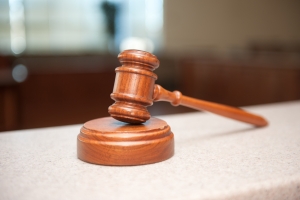What is Probable Cause?
“Probable Cause” is the standard used to determine whether or not there is sufficient reason to make an arrest. In the case of Bryant v. State, the Second District Court of Appeals described probable cause, as follows:
“Probable cause for an arrest has been defined to be a reasonable ground of suspicion, supported by circumstances sufficiently strong in themselves to warrant a cautious man in believing the accused to be guilty. * * * It is not necessary for the officer to see and know that the law is being violated. Nor is it necessary for him to satisfy himself beyond question that a felony has in fact been committed, to justify an arrest without a warrant, though he may not act on unsubstantial appearances or unreasonable stories.” 4 Am.Jur., Arrest, Sec. 48, pp. 32-34.
 Jacksonville Criminal Defense Lawyer Blog
Jacksonville Criminal Defense Lawyer Blog


 Florida law, under
Florida law, under 
